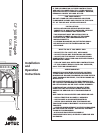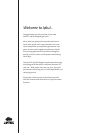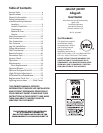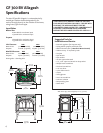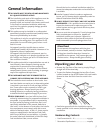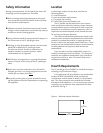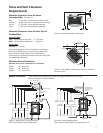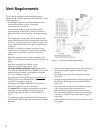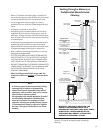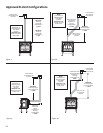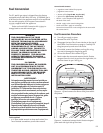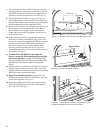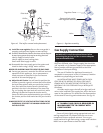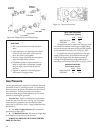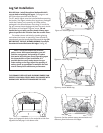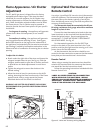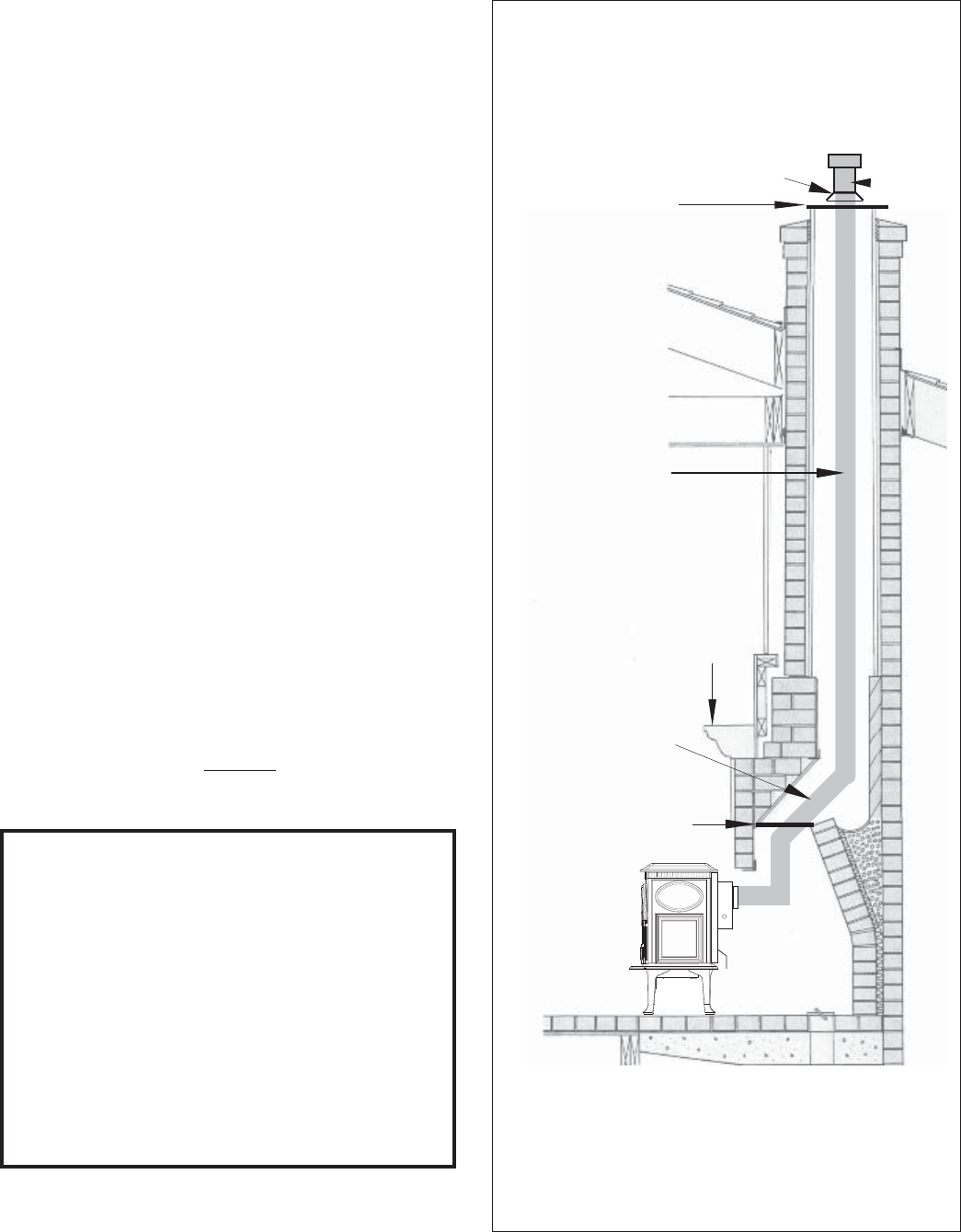
9
• When 6” diameter decorative pipe is installed to
cover the venting any Listed Flexible Gas liner must
be connected directly to the stove’s draft hood.
• Use of single wall connector pipe as a vent is
prohibited for use with the GF300 Allagash B-Vent
stove.
• A firestop is required at every floor.
• Any venting that is exposed above the first floor,
regardless of attic space or living space, must be
enclosed. Always maintain the required clearance
from all sides of the vertical vent system according
to manufacture.
• Installation of any components not manufactured or
approved by Jøtul or failure to meet all clearance
requirements will void all warranties and could result
in property damage, bodily injury, or serious fire.
• Never modify any venting component, or use any
damaged venting product.
• THE GAS APPLIANCE AND VENT SYSTEM MUST BE
VENTED DIRECTLY TO THE OUTSIDE OF THE BUILD-
ING, AND NEVER ATTACHED TO A CHIMNEY SERV-
ING A SOLID FUEL OR GAS BURNING APPLIANCES.
• BE SURE TO MAINTAIN THE PROPER CLEARANCES TO
COMBUSTIBLES AS DEFINED IN THIS MANUAL AND
IN THE INSTRUCTIONS PROVIDED WITH EACH
VENTING COMPONENT.
• When installing at an altitude above 2000’ the
minimum vertical rise
becomes 12’ from the draft
hood.
Figure 6. GF 300 BV venting through a masonry
chimney.
Listed
termination
cap required
Storm collar
required
Recommended
damper sealing plate
to seal flue chamber
to prevent heat loss
Always
maintain the
proper
clearance to
mantel and
trim
Maximum
offset is 4 ft.
Type B vent or
Listed Flexible Gas
Liner.
Use of Type B vent
liner within outside
chimneys is
recommended to
help keep the gases
warm and stabilize
draft.
Max. Height 35 ft.
Min. Height 7 ft.
Top sealing
achor plate
WARNING: FAILURE TO POSITION THE
PARTS IN ACCORDANCE WITH THIS
DIAGRAM OR FAILURE TO USE ONLY PARTS
SPECIFICALLY APPROVED WITH THIS
APPLIANCE MAY RESULT IN PROPERTY
DAMAGE OR PERSONAL INJURY.
Venting through a Masonry or
Prefabricated Manufactured
Chimney
NOTE:
A chimney system located outside the building
envelope may be subject to downdrafting
and/or flow reversal. Atmospherically-vented
appliances, such as B-Vents, may not be compat-
ible with these chimney systems.
All atmospherically-vented appliances (B-Vents)
are affected by atmospheric conditions and
house pressurization. For example, a B-Vent
appliance vented to an outside chimney system
in a basement will likely be subject to negative
pressure. This type of installation is not recom-
mended.



